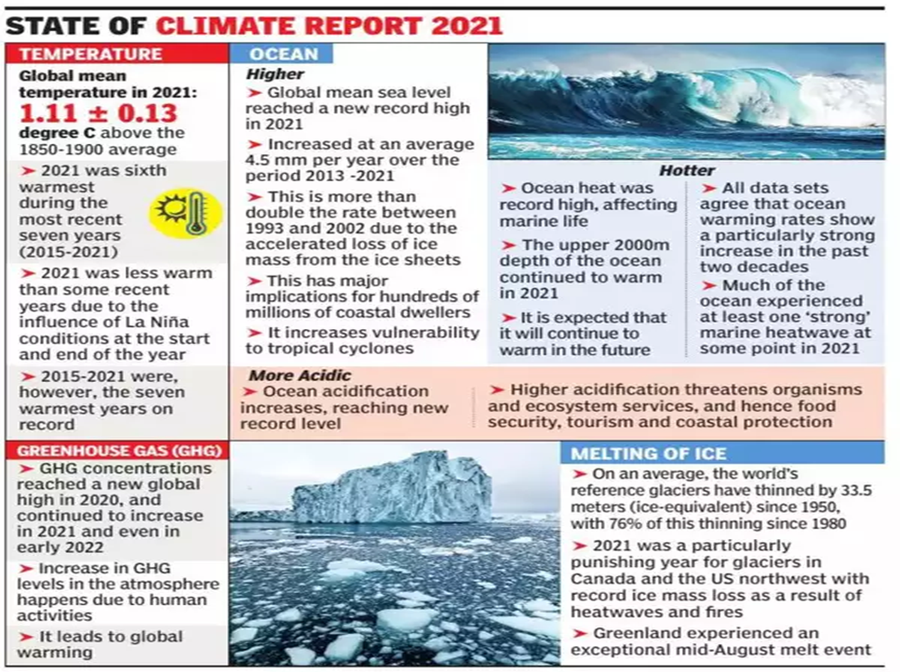In News: In its recently released ‘State of Climate’ report, the World Meteorological Organisation (WMO) noted that four key climate change indicators - greenhouse gas (GHG) concentrations, rise in sea level, ocean heat and ocean acidification, set new records in 2021.
What’s in today’s article:
- The ‘State of Climate’ report
- Highlights
- Concerns and suggestions
The ‘State of Climate’ report:

- Highlights:
- The last seven years (2015-21), were globally the warmest years on record, and the average global temperature last year was about 1 degree Celsius above the pre-industrial level (1850-1900).
- The annual average global temperature has a 50:50 chance of temporarily exceeding 1.5°C over pre-industrial levels in at least one of the next five years.
- The year 2021 was slightly less warm due to a La Nia (cooler than normal seas in the tropical Pacific Ocean) event at the start and end of the year, but this did not reverse the overall trend of rising temperatures.
- The global mean sea level reached a new record high in 2021, rising an average of 4.5 mm per year over the 2013-2021 period.
- It increased at more than double the previous rate due to accelerating loss of ice mass, making people in coastal areas more vulnerable.
- Some glaciers have reached the point of no return, which will have long-term consequences in a world where more than two billion people already face water scarcity.
- The extreme weather events (like heat waves, cyclones and floods) around the world, led to loss and damages of more than $100 billion in 2021.
- For example, cyclonic events such as Tauktae and Gulab and floods in India have resulted in displacement of more than one lakh people last year.
- Concerns and suggestions:
- The report is a terrible record of humanity's failure to address climate change.
- This is a clear indication of how global warming will be deadly for coastal communities, as the catastrophic level of 1.5 degrees Celsius rise is not far away.
- Such indicators affect not just human population along the coasts but also marine life endangering biodiversity and food security.
- According to the UN secretary general -
- The extreme weather events are "day-to-day face of climate change" and urged for immediate actions to substantially reduce GHG emissions.
- Fossil fuels are a dead end - environmentally and economically, and we must end fossil fuel pollution and accelerate the renewable energy transition.









